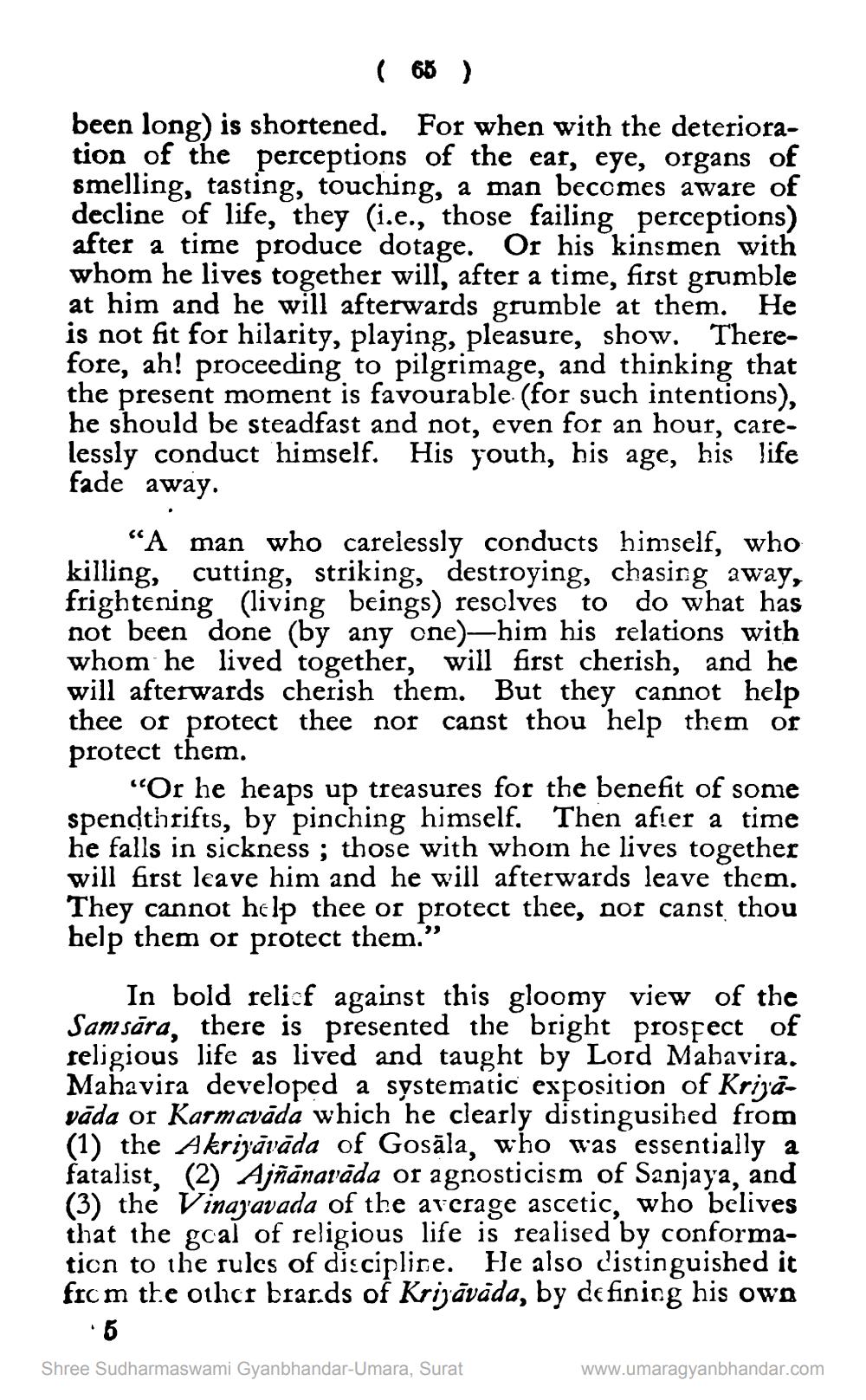________________
( 68 ) been long) is shortened. For when with the deterioration of the perceptions of the ear, eye, organs of smelling, tasting, touching, a man becomes aware of decline of life, they i.e., those failing perceptions) after a time produce dotage. Or his kinsmen with whom he lives together will, after a time, first grumble at him and he will afterwards grumble at them. He is not fit for hilarity, playing, pleasure, show. Therefore, ah! proceeding to pilgrimage, and thinking that the present moment is favourable (for such intentions), he should be steadfast and not, even for an hour, carelessly conduct himself. His youth, his age, his life fade away.
"A man who carelessly conducts himself, who killing, cutting, striking, destroying, chasing away, frightening (living beings) resolves to do what has not been done (by any cne)—him his relations with whom he lived together, will first cherish, and he will afterwards cherish them. But they cannot help thee or protect thee nor canst thou help them or protect them.
“Or he heaps up treasures for the benefit of some spendthrifts, by pinching himself. Then afier a time he falls in sickness; those with whom he lives together will first leave him and he will afterwards leave them. They cannot help thee or protect thee, nor canst thou help them or protect them.'
In bold relief against this gloomy view of the Samsāra, there is presented the bright prospect of religious life as lived and taught by Lord Mahavira. Mahavira developed a systematic exposition of Krijā. vāda or Karmavāda which he clearly distingusihed from (1) the Akrizāvāda of Gosāla, who was essentially a fatalist, (2) Ajñānarāda or agnosticism of Sanjaya, and (3) thé Vinajavada of the arcrage ascetic, who belives that the goal of religious life is realised by conformaticn to the rules of discipline. He also distinguished it from the other brands of Krijāvada, by defining his owo
.5 Shree Sudharmaswami Gyanbhandar-Umara, Surat
www.umaragyanbhandar.com




